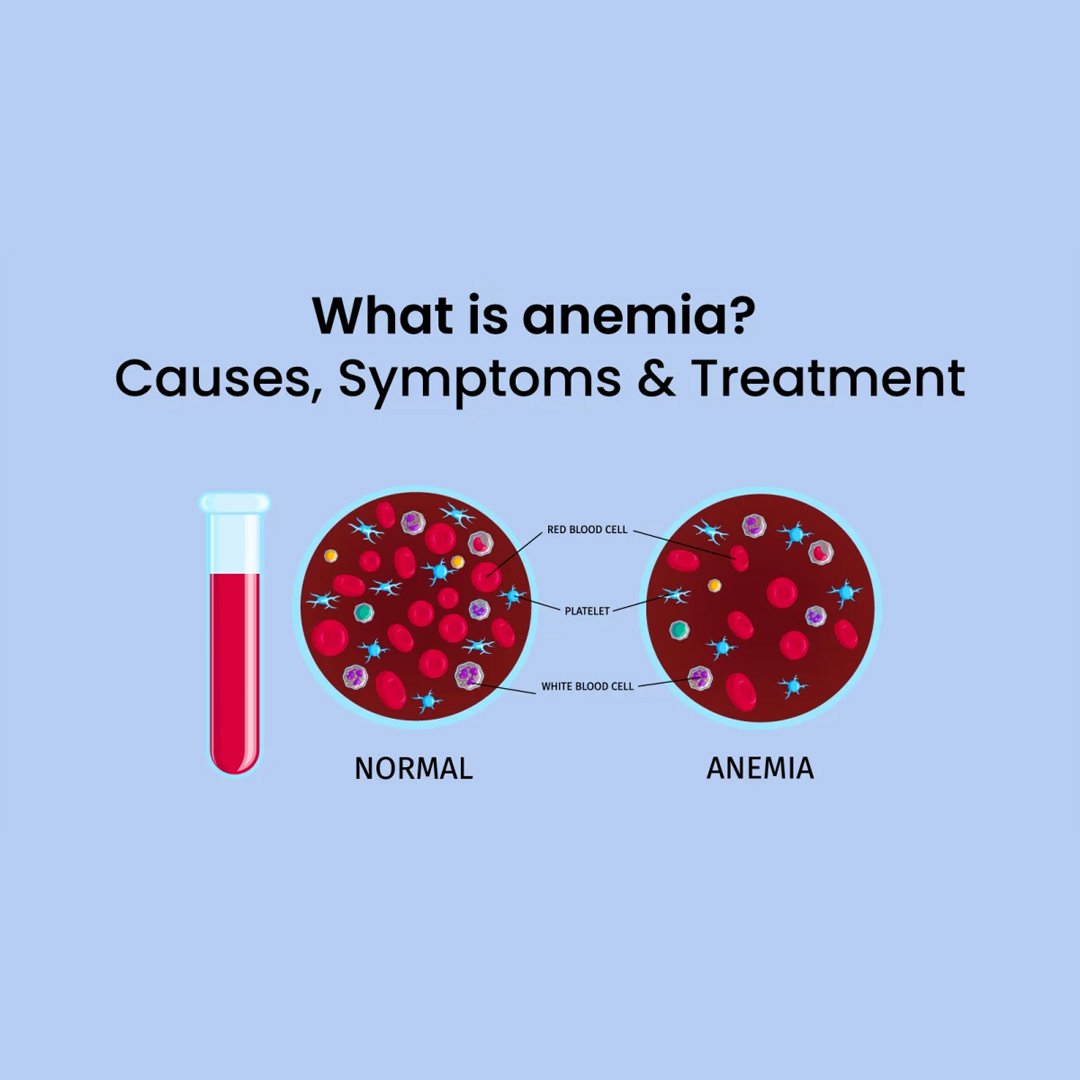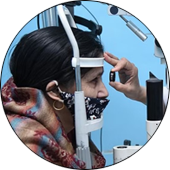- Email: Sushil_60@yahoo.com
- 4/15, sector -5, rajendra nagar
- Call: +91 98100 32030
Anemia

20
Years of Experience in This Field
The Great Place Of New Vision Eye and Medical Care. Best Eye Care Clinic in Ghaziabad.
"The Great Place Of New Vision Eye and Medical Care" is the premier Eye Care Clinic in Ghaziabad, dedicated to providing top-notch medical and eye care services to the community. Our mission is to offer comprehensive, compassionate, and state-of-the-art eye care to improve the vision and overall well-being of our patients.
Our Mission
- High-quality work
- Innovation and Research
- Rapid response times
Our Vision
- Best Price
- Best Treatment
- Emergency solutions
What is Anemia?
Anemia is a medical condition characterized by a deficiency of red blood cells (RBCs) or a lower than normal concentration of hemoglobin in the blood. Hemoglobin is a protein in RBCs that binds to oxygen in the lungs and carries it to the body's tissues and organs. When there are not enough RBCs or hemoglobin, the body may not receive an adequate supply of oxygen, which can lead to a variety of symptoms and health problems.
The most common causes of anemia include:
1. Iron-deficiency anemia: This is the most common type of anemia and is typically
caused by a lack of iron in the diet, poor iron absorption, or blood loss (e.g., from heavy
menstrual periods or gastrointestinal bleeding).
2. Vitamin-deficiency anemia: Deficiencies in certain vitamins, such as vitamin B12 and
folic
acid, can lead to anemia. These vitamins are essential for the production of healthy
RBCs.
3. Hemolytic anemia: This type of anemia occurs when the body destroys red blood cells more
rapidly than it can produce them. It can be inherited or acquired and is often related to
underlying medical conditions.
4. Aplastic anemia: In this rare type of anemia, the bone marrow fails to produce enough
RBCs,
white blood cells, and platelets, often due to damage or suppression of the bone
marrow.

5. Chronic diseases: Some chronic conditions, like chronic kidney disease, inflammatory disorders, and certain cancers, can lead to anemia.
Anemia can cause a range of symptoms, including fatigue, weakness, pale skin, shortness of breath, dizziness, cold hands and feet, headaches, and irregular heartbeat. The specific symptoms and severity can vary depending on the cause and the degree of anemia.
Diagnosis and treatment of anemia depend on the underlying cause. Treatment may involve dietary changes, iron supplements, vitamin supplements, blood transfusions, medications, or addressing the underlying medical condition. It's important to consult a healthcare professional for a proper diagnosis and appropriate treatment if you suspect you have anemia.
A Global Leader, Treatment
of eye Disease

Heart Disease
Heart disease, also known as cardiovascular disease, refers to a group of conditions that affect the heart and blood vessels. It can encompass various disorders such as coronary artery disease, heart failure, arrhythmias, and valvular diseases.

Pediatric Ophthalmology
Pediatric ophthalmology is a medical specialty focused on the diagnosis and treatment of eye and vision problems in children, from infancy to adolescence.

Lenses Transitions
Transition lenses are a type of eyeglass lens that automatically adjusts their tint in response to changing light conditions. They darken when exposed to UV light and become clear indoors.
How it Helps You to
Keep Healthy

Get Appointment
+91 98100 32030

Start Check-Up
Begin Your Journey to Better Health Today: Start Your Check-Up!

Enjoy Healthy Life
Embrace Wellness: Enjoy a Healthier Life!
What are The 5 Symptoms of Anemia?
Anemia can present with a variety of symptoms, and the specific symptoms can vary depending
on the severity and underlying cause of the condition. Here are five common symptoms of
anemia:
1. Fatigue: One of the most prevalent symptoms of anemia is persistent and unexplained
fatigue. This is primarily due to the reduced ability of the blood to carry an adequate
supply of oxygen to the body's tissues and organs.
2. Weakness: Anemia can lead to a general feeling of weakness and lack of energy. People with anemia may find it difficult to perform daily tasks or engage in physical activities.
3. Pale Skin: Anemic individuals often have paler-than-normal skin because there is a decreased amount of hemoglobin and, consequently, less oxygen-carrying capacity in the blood. This can result in a noticeable pallor.
4. Shortness of Breath: Anemia can cause shortness of breath, especially during physical exertion or when the body requires more oxygen. This is a result of the reduced oxygen-carrying capacity of the blood.
5. Dizziness and Headaches: Anemic individuals may experience dizziness or lightheadedness, which can be exacerbated when standing up quickly. Headaches can also be a symptom of anemia due to reduced oxygen supply to the brain.

It's important to note that anemia can have a wide range of symptoms, and individuals may experience a combination of these and other related symptoms. The severity and specific symptoms of anemia can vary depending on the underlying cause and the individual's overall health. If you suspect you have anemia or are experiencing these symptoms, it's crucial to consult a healthcare professional for a proper diagnosis and appropriate treatment.

